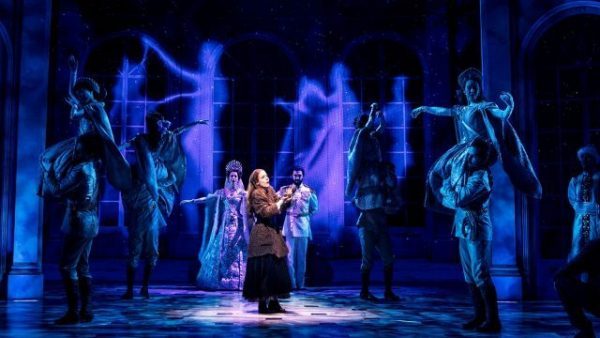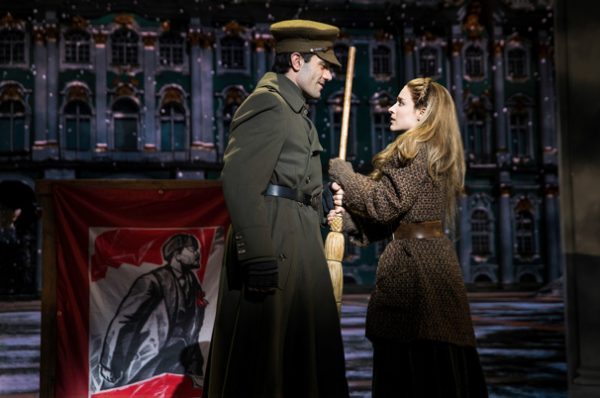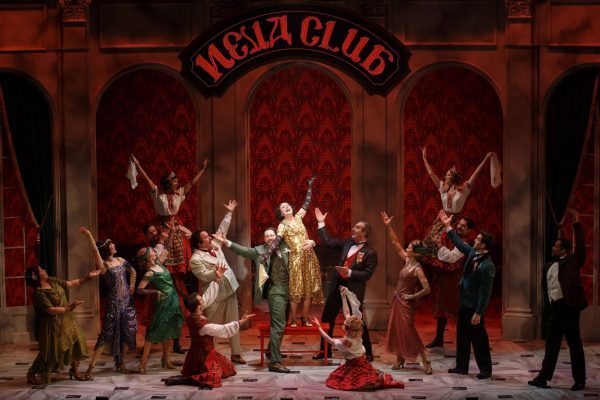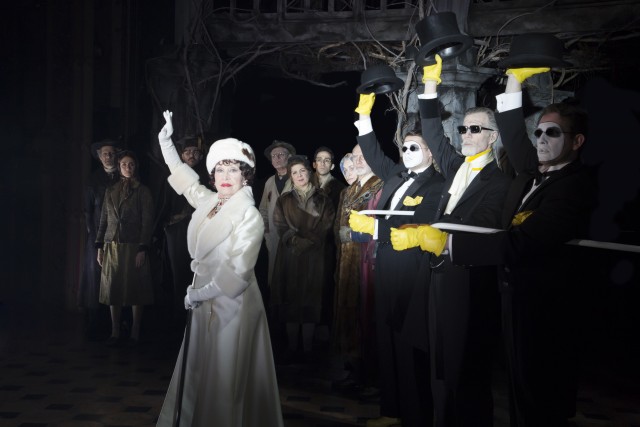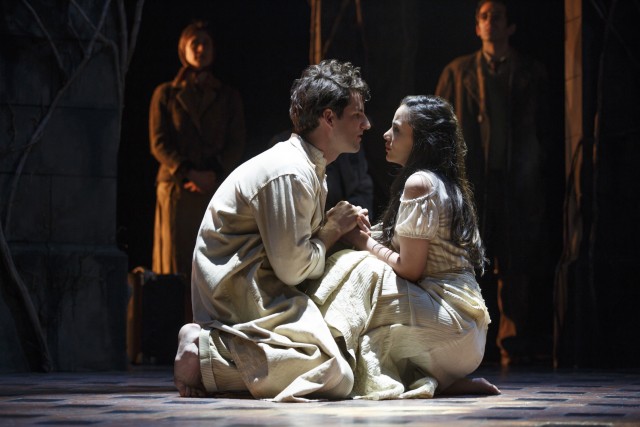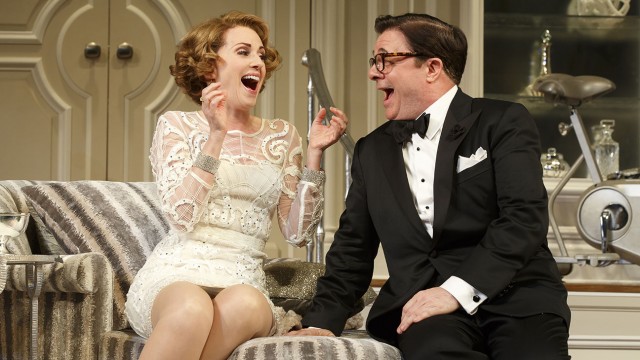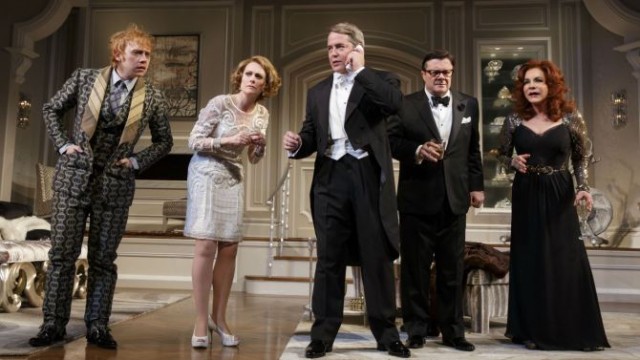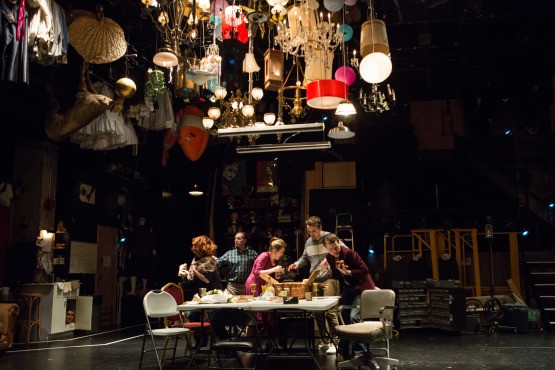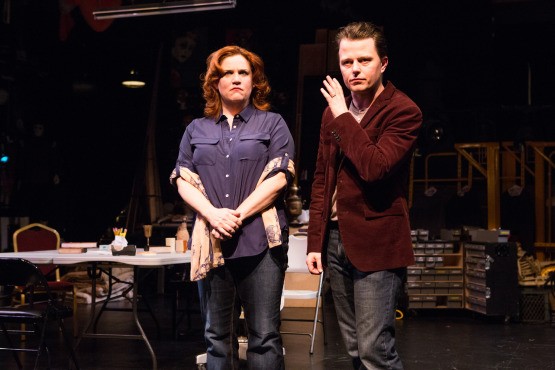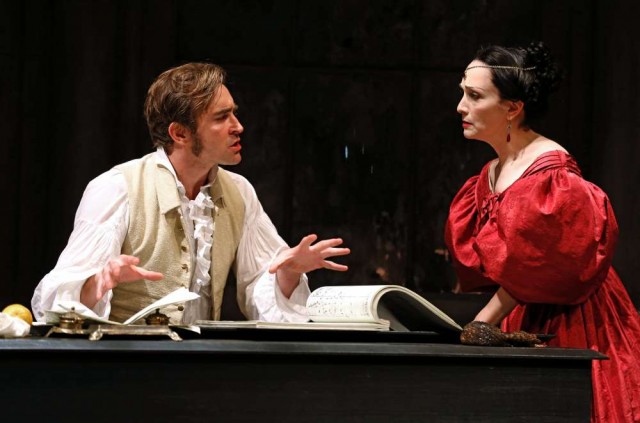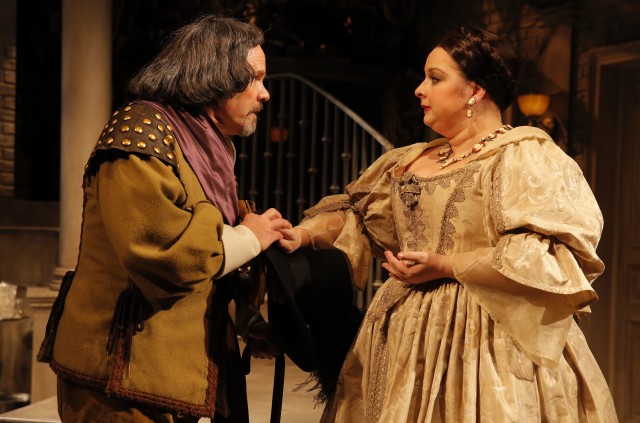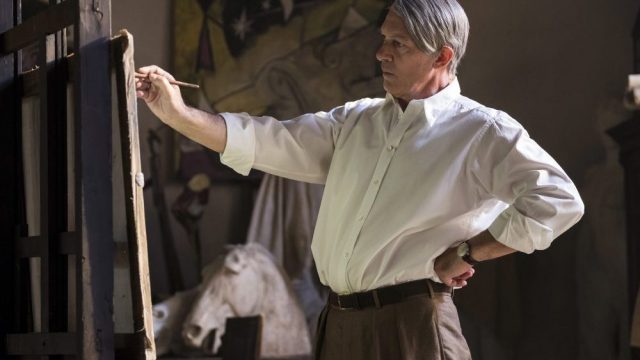
Antonio Banderas will be at the Tribeca Film Festival to discuss his portrayal of Pablo Picasso in Genius: Picasso
Tribeca Film Festival
Multiple locations
April 18-29, $33.15 – $43.45
www.tribecafilm.com/festival
The Tribeca Film Festival’s “After the Screening” series features conversations, panel discussions, live performances, and Q&As following screenings of more than two dozen films and television episodes, not including the special shows at the Beacon Theatre. Most of the events, held at the SVA Theater, BMCC Tribeca PAC, Cinépolis Chelsea, and the festival hub at Spring Studios, cost between $25.94 and $43.45, except on April 27, when they’re free. Among the guests appearing “After the Screening” are Viola Davis, Sam Rockwell, Paris Hilton, André Leon Talley, Jennifer Beals, Steve Buscemi, Sandra Bernhard, Alexandre Rockwell, Brian Grazer, Joy Reid, Terrence McNally, Christine Baranski, F. Murray Abraham, Chita Rivera, Matthew Broderick, Antonio Banderas, Katie Couric, Tom Sturridge, Natalie Dormer, Paul Sparks, Kathleen Cleaver, Alex Gibney, Emily Mortimer, Alessandro Nivola, Ron Perlman, Kyle Abraham, Ralph Macchio, DJ Jahi Sundance, the Last Poets, Jason Reitman, and Tamara Jenkins. Tickets are still available for most of the presentations, although some are already at rush and limited status.
Thursday, April 19
Tribeca Talks: Director’s Series: Tully (Jason Reitman, 2018), conversation with Jason Reitman and Tamara Jenkins, BMCC Tribeca PAC, $43.45, 5:15
Westworld, discussion with Jonathan Nolan, Lisa Joy, Evan Rachel Wood, Thandie Newton, Jeffrey Wright, and James Marsden, BMCC Tribeca PAC, rush, 8:30
Friday, April 20
Rest in Power: The Trayvon Martin Story (Julia Willoughby Nason & Jenner Furst, 2018), conversation with codirectors Julia Willoughby Nason and Jenner Furst, the parents of Trayvon Martin, Sybrina Fulton and Tracy Martin, executive producers Mike Gasparro and Chachi Senior, and special guests, moderated by Joy Reid, BMCC Tribeca PAC, $33.15, 5:45
Genius: Picasso, conversation with showrunner Ken Biller, executive producers Brian Grazer and Francie Calfo, and cast members Antonio Banderas, Alex Rich, Clémence Poésy, Poppy Delevingne, and Samantha Colley, moderated by Cynthia Littleton, BMCC Tribeca PAC, $33.15, 8:30
Saturday, April 21
Bathtubs over Broadway (Dava Whisenant, 2018), conversation with members of the cast and a special performance inspired by the film with surprise guests, BMCC Tribeca PAC, $33.15, 2:00
Freaks & Geeks: The Documentary (Brent Hodge, 2018), conversation with director Brent Hodge and Freaks and Geeks creator Paul Feig, Tribeca Festival Hub, $33.15, 8:00
Sunday, April 22
Netizens (Cynthia Lowen, 2018), conversation with director Cynthia Lowen and subjects Tina Reine, Carrie Goldberg, and Anita Sarkeesian, SVA Theater 2 Beatrice, rush, 2:00
To Dust (Shawn Snyder, 2018), followed by Tribeca Film Institute conversation with writer/director Shawn Snyder, producers Emily Mortimer, Alessandro Nivola, and Ron Perlman, cast members Geza Rohrig and Matthew Broderick, and biologist Dawnie Steadman, hosted by Alfred P. Sloan Foundation, SVA Theater 1 Silas, rush, 6:00
Mr. Soul (Melissa Haizlip & Samuel Pollard, 2018), followed by #SOUL50: A 50th Anniversary Tribute to SOUL! hosted by Blair Underwood and featuring performances from Robert Glasper, Lalah Hathaway, Kyle Abraham, DJ Jahi Sundance, Sade Lythcott, Kathleen Cleaver, and the Last Poets: Abiodun Oyewole, Umar Bin Hassan and Felipe Luciano, Tribeca Festival Hub, $33.15, 8:00
Monday, April 23
Every Act of Life (Jeff Kaufman, 2018), conversation with director Jeff Kaufman, playwright Terrence McNally, actor/director Joe Mantello, and actors F. Murray Abraham, Christine Baranski, and Chita Rivera, moderated by Frank Rich, SVA Theater 2 Beatrice, rush, 8:00
Blue Note Records: Beyond the Notes (Sophie Huber, 2018), followed by special guest performance by Blue Note artists Robert Glasper, Derrick Hodge, and Kendrick Scott, Tribeca Festival Hub, rush, 8:00
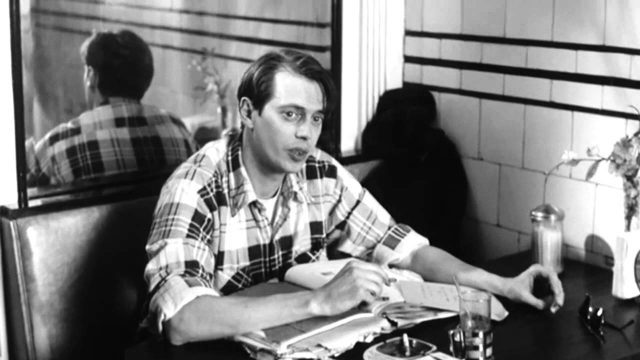
Steve Buscemi will take part in twenty-fifth anniversary screening of In the Soup with Jennifer Beals, Sam Rockwell, and others
Tuesday, April 24
In the Soup (Alexandre Rockwell, 1992), conversation with director Alexandre Rockwell, actors Steve Buscemi, Jennifer Beals, and Sam Rockwell, and cinematographer Phil Parmet, SVA Theater 1 Silas, $25.94, 7:30
Cobra Kai, conversation with writers, directors, and executive producers Hayden Schlossberg, John Hurwitz, and Josh Heald and series stars and executive producers Ralph Macchio and William Zabka, SVA Theater 2 Beatrice, rush, 7:45
Wednesday, April 25
Bobby Kennedy for President (Dawn Porter, 2018), conversation with director Dawn Porter and Ambassador William vanden Heuvel, SVA Theater 1 Silas, $33.15, 5:00
Woman Walks Ahead (Susanna White, 2017), conversation with director Susanna White, actor Sam Rockwell, and others, BMCC Tribeca PAC, $25.94, 5:45
Phenoms, conversation with executive producers David Brooks and Mario Melchiot, producer Arbi Pedrossian, creative director Chris Perkel, producer and editor Thomas Verette, and directors Jane Hicks, Jeff Zimbalist, and Michael Zimbalist, SVA Theater 2 Beatrice, $33.15, 8:30
The Gospel According to André (Kate Novack, 2018), conversation with director Kate Novack, subject André Leon Talley, producers Andrew Rossi and Josh Braun, and executive producer Roger Ross Williams, moderated by Sandra Bernhard, BMCC Tribeca PAC, $33.15, 8:30
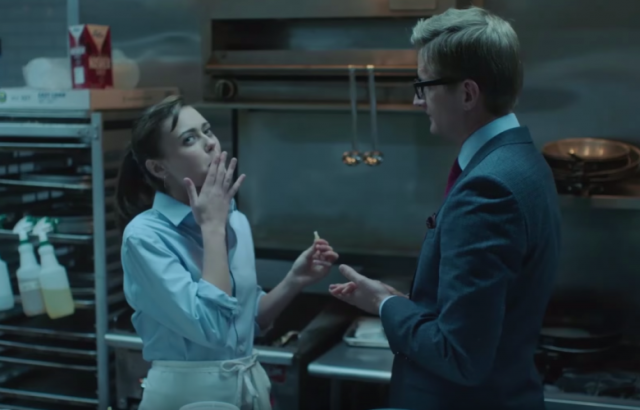
Ella Purnell and Paul Sparks will talk about their new series, Sweetbitter, at Tribeca
Thursday, April 26
Sweetbitter, conversation with creator, executive producer, and writer Stephanie Danler, showrunner Stuart Zicherman, and cast members Ella Purnell, Caitlin FitzGerald, Tom Sturridge, and Paul Sparks, moderated by Katie Couric, SVA Theater 1 Silas, rush, 5:00
Enhanced, conversation with executive producer Alex Gibney and directors Chai Vasarhelyi and Jesse Sweet, moderated by Marisa Guthrie, Cinépolis Chelsea 7, $33.15, 6:00
RX: Early Detection a Cancer Journey with Sandra Lee (Cathy Chermol Schrijver, 2018), conversation with director Cathy Chermol Schrijver and subjects Sandra Lee and Kimber Lee, SVA Theater 1 Silas, $25.94, 7:45
Drunk History, conversation with cocreator, director, and host Derek Waters, cocreator and director Jeremy Konner, and special guests (and two complimentary drink tickets), Tribeca Festival Hub, $33.15, 8:30
Friday, April 27
Little Women (Vanessa Caswill, 2017), conversation with executive producers Colin Callender and Rebecca Eaton and cast member Maya Hawke, SVA Theater 1 Silas, free with advance ticket, 5:00
The Last Defense, conversation with executive producers Viola Davis and Julius Tennon, SVA Theater 2 Beatrice, free with advance ticket, 6:00
The American Meme (Bert Marcus, 2018), conversation with director Bert Marcus and subjects Paris Hilton, Kirill Bichutsky, Brittany Furlan, the Fat Jew, and Hailey Baldwin, Tribeca Festival Hub, limited, 8:00
Saturday, April 28
The Staircase, conversation with creator and director Jean-Xavier de Lestrade and producers Matthieu Belghiti and Allyson Luchak, SVA Theater 2 Beatrice, $33.15, 6:00
Picnic at Hanging Rock (Larysa Kondracki, 2018), conversation with director Larysa Kondracki, executive producer Jo Porter, and cast member Natalie Dormer, SVA Theater 1 Silas, $33.15, 8:00
